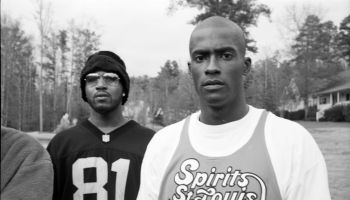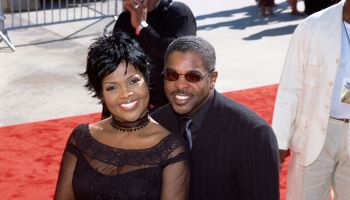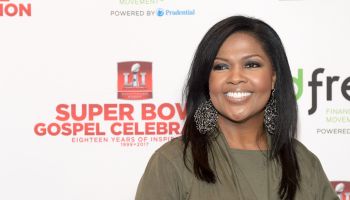As a 12-year-old girl emigrating to America from Ghana, Sandra Appiah’s (pictured) background was certainly vulnerable to xenophobia.
And when she began high school, such attacks did come her way. But not from whom one might expect.
SEE ALSO: Dad Cuffed After His Daughter Was Placed In Tub Full Of Burning Hot Water
“A lot of the comments I was receiving was from African Americans or a lot of the discrimination [came] from African Americans,” the 23-year-old noted about her teenage years in the Bronx.
“Every time we did something wrong, it was, ‘Oh, go back to Africa,’ or, ‘Oh, go back to the jungle.’ ‘You’re an African booty scratcher,’ or, ‘You stink,’ or, ‘You live in trees,’ or things like that. I had no idea where these ideas were coming from, because I remember in Africa I was a very happy child growing up.”
“But for some reason here, these African-American kids think I play with animals and I wasn’t sure where these ideas were coming from. It came to the point where I would tell people, ‘You know, I’m not an African.’ I’d tell people my mom is White and my dad is Black because I’m very light-skinned.” Eventually, Appiah discovered the reason for all the animosity from people she shared skin colors with.
“CNN, PBS, all these documentaries, this is how they portray Africa,” Appiah continues. “So in their [African-Americans’] mind-set, this is the only way they know Africa to be.”
Rather than just accept this, though, Appiah knew she had to take action, co-founding a company called “Face 2 Face Africa” in March 2011.
A month later, Face 2 Face Africa Magazine (F2FA) was born online, with the mission of “restoring Africa’s image within the global community.” Appiah’s role as F2FA’s Editor-In-Chief/Chief Operations Director gives her the perfect medium to improve relations between all people with African lineage, while placing the continent under a bright and progressive spotlight.
“Unless we change that perception and we present another side of Africa, that will constantly be the way that Africa is viewed,” the Syracuse graduate says. “We felt that there’s a need for a platform that will bridge the gap, that will remind us of our common ancestry [that we are] all people of African descent.”
But she hasn’t been able to get this far in that mission without some help along the way.
Enter business partner and fellow Ghanaian Issac Boateng, 28 (pictured left). In 2008, the two formed a business relationship bonded by their symmetrical upbringings, laying conceptual groundwork for what would become F2FA years later.
“Sandra was working on a project, a film project, and I’m kind of known within the African community as the go-to person for different print production,” Boateng recalls. “She wanted me to assist her in terms of being published for that particular film project. When we met, we touched on our childhood experience being very similar. We saw what the need for having this sort of platform was.
“We started talking about it. We wanted to make sure everything was right before we actually went forward. From 2008 up until 2011 was the strategic planning process: how to implement it, how to execute it, trying to figure out how we can come together and really help change the image of Africa due to our very similar upbringing in the Bronx.”
Boateng believes the stereotypes some African Americans have about Africans is due to their educational upbringing. He came to this realization after having attended Lincoln University, an HBCU, years ago.
“The students were eager to learn about Africa, to learn about where the roots are, and how they can be connected, so I saw the difference from going from middle school to high school and transitioning to college. [There was a] huge difference [in] African Americans wanting to learn about their roots.”
Parental guidance regarding how Africa and Africans are seen also played a role in educating African-American kids.
“The way these kids’ parents were made a difference. These parents were educated and had gone to school and had different perspectives of Africa and knew how to do their own research instead of relying on what the media has to say,” Boateng said. “So they taught their children that Africa perhaps was more than what they see.”
Just as important, Africans need to see that their American brethren don’t belong in the one-size-fits-all category.
“Africans also have misconceptions about African Americans,” Appiah adds. There are some Africans who think in some cases they are better than African Americans, and some people feel like, ‘You know, we know where we’re from. We have our roots.’ They feel African Americans are lazy and don’t take advantage of all the opportunities available. So from both sides we see trends and misconceptions that are affecting our ability to unite as one.”
While their digital debut last year was a huge milestone, it was a mere precursor to the magazine’s ultimate goal: producing a print version of the magazine. Once they established a print division in March, it was only a matter of time before their first publication came out, which was finally released December 8th.
Face 2 Face Africa Magazine’s first issue profiles Kwame Boateng, Kofi Siriboe, and Kwesi Boakye, three Ghanaian actors (and brothers) who are making a splash in the Hollywood scene. The magazine also redefines African beauty, highlights metropolitan African cities, and rebrands Africa by seamlessly merging “old Africa” with “new Africa” through first-person essays, politics, and fashion.
“The vision has really been to launch the print version. That has been our vision from day one,” Appiah says. “We had a pre-launch event for it early on in the year in New York City. Finally after a few months, we’re happy to release the print version in to the market.”
“We’re very proud; this publication is beyond just having a physical publication in hand.
“We really want to encourage people all over the world who have a dream and want to do something; you can. You don’t always have to wait to get an investment or to get some resources to start. Once you have your first foot in the door and you have a clear vision of what you want to do, you should just go ahead and do it and the right resources will come along the way.”
Today, the magazine publishes twice a year, but the pair plan on increasing its frequency. “We definitely want to take our time with it,” Boateng says. “Our goal is to be a quarterly publication. We want to start small and go from there.”
You can purchase the first print issue and find out more about F2FA Magazine, here.
SEE ALSO:
Well Alrighty Now! Teen Achieves Perfect Score On SAT’s
The ‘Big Aristotle’ Launches ‘Luv Shaq’ Vodka Line
Editor Mends Black Relations, Rebrands Africa Through New Magazine was originally published on newsone.com














